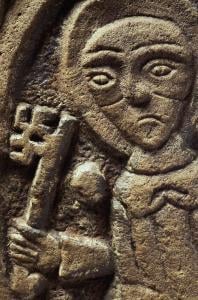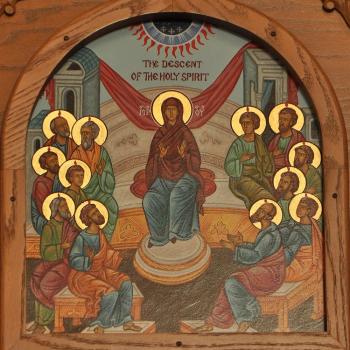
Looking back to when Pope Francis was first introduced to the world, I remember how quickly the opposition to him arose. It came from Latin America, and various so-called traditionalists who sought to have him viewed as a heretic because he did not support them in their desire to return the church to the way it was right before Vatican II. While they claim to be traditionalists, as usual with such extremists, they did not understand tradition how tradition develops over time. They certainly did not comprehend that Christianity is not meant to be a legalistic faith, with rigoristic rules which allow only one way for the faith to be lived out. They used the internet, and social media, to try to create a hostile perception of Pope Francis, and though not everyone listened to them, enough did that it created the hermeneutic of suspicion which has ever since been used by Francis’ critics to question and deny what he taught and did. Some have come to believe, through them, that Pope Francis was a heretic, someone who is best to be ignored and rejected. Because of this effort, many Catholics, even those who do not believe Francis was a heretic, came to believe that Francis was untraditional, and that there was little to no continuity between his papacy and those which came immediately before him. This is why we many on the internet suggest that those who are loyal to Pope Francis, and defend what he said, will have a difficult time following the next Pope, because they believe the next Pope will go back to the tradition which Francis rejected.
Those who actually study and understand what has been taught, instead of just trying to be contrarian, or reading quick snippets pulled up and shown out of context, can see that Pope Francis was quite in line with the initiatives which began with his immediate predecessors, St. John Paul II and Benedict XVI (as can be seen, for example, in what they taught on the death penalty and climate change). This is not to say there was nothing unique with Pope Francis, but that is because every person is different and will always be unique, so that every papacy will have qualities which those which preceded them did not. Difference, however, does not equate with heresy, let alone a lack of continuity (if it did, development would be impossible).
There are some of those who have shown themselves to be frustrated with the teaching of Pope Francis who have been working behind the scenes to try to take control of what happens during the next conclave. Not only do we see this by the way some have already written and shared books on the topic, trying to control the narrative in advance, we also see something far more insidious, as some have tried to make a list of cardinals, heaping charges on those they do not like, hoping to have those lists shared at the next conclave. Calumny is a sin, but they do not care, as their interest is in trying to take control of the church by any means necessary. Of course, if they do not get their wish, their work will serve as the basis by which they can and will denigrate the next Pope, following the way Pope Francis was denigrated, using a dishonest picture to try to convince Catholics to ignore the Pope and to listen to others, those they have confirmed as orthodox, instead.
I hope and pray that the cardinals going into the conclave on May 7 will see through the lies, misrepresentations, distortions of the truth, which are already being spread in order to influence them. Yes, I know there are some cardinals who seem connected to the groups trying to manipulate the church, but I do not think they hold as much sway as they believe they do. Nonetheless, whoever is chosen to be the next Pope will be Pope, and, unlike those who try to separate Pope Francis from the rest, the next Pope can only continue on where Pope Francis left off, showing that there is indeed a continuity between papacies. I trust the Holy Spirit who, while not directly making the choice, forcing one person to become the next Pope, will be able to work with and guide the church through whomever is chosen, protecting the church from grave harm if the choice is far from the best. Some will more likely engage the promptings of the Holy Spirit more than others, and so follow closer with the way the Holy Spirit wants the church to develop, but even those who resist such change will not be able to permanently block the work of the Spirit, and much of what they do will be able to be used for the Spirit’s goals. Certainly, there are some candidates for the Pope I would prefer over others, and there are some whose current private opinions and views I do not agree with, but it is also important to remember we do not have to agree with all the private opinions of those who are made Pope. What we must do is take seriously what a Pope teaches on an official level, engaging it on its proper doctrinal level; and on those issues where there are room for disagreements, it is important to do so in a respectful way, something which is lost with many of Pope Francis’ critics.
It is because I trust in the Holy Spirit, and that the Holy Spirit gives the Pope a certain charism to lead the church, I trust that the next Pope will be able to do some of the things which we, in the world, need to have done. This does not mean the next Pope will do everything we wish from him, that all the problems in the institutional church will be worked out. They never will be completely eradicated until the end of time. I do hope the next Pope will be a holy Pope, one who works with the people with pastoral care and compassion, and will be one who shows us that the church can and should continue to develop, and in doing so, continue to change the world for the better. Yes, I might be disappointed, indeed, I understand that, and even if the Pope is the best which is possible for the moment, he will still be human who does things which will disappoint me and others. Ever since St. Peter, Popes have been known to have imperfections. Even the best Popes could be made to be made to look like great sinners and heretics, if people take their teachings and actions out of context. If we go in understanding this, if we are prepared and know that they will not be perfect, we will be able to resist having the perfect be the enemy of the good. We should look for the good which they promote and do, the good which is central to their work as Pope, learn from it, and engage it; if our position is not to look for the good, but to look for the bad, we will find it and in doing so ignore what it is the Holy Spirit would have us do, which is exactly what many of Pope Francis’ most vocal critics have done.
* This Is Part LVI Of My Personal (Informal) Reflections And Speculations Series
Stay in touch! Like A Little Bit of Nothing on Facebook.
If you liked what you read, please consider sharing it with your friends and family!
N.B.: While I read comments to moderate them, I rarely respond to them. If I don’t respond to your comment directly, don’t assume I am unthankful for it. I appreciate it. But I want readers to feel free to ask questions, and hopefully, dialogue with each other. I have shared what I wanted to say, though some responses will get a brief reply by me, or, if I find it interesting and something I can engage fully, as the foundation for another post. I have had many posts inspired or improved upon thanks to my readers.













